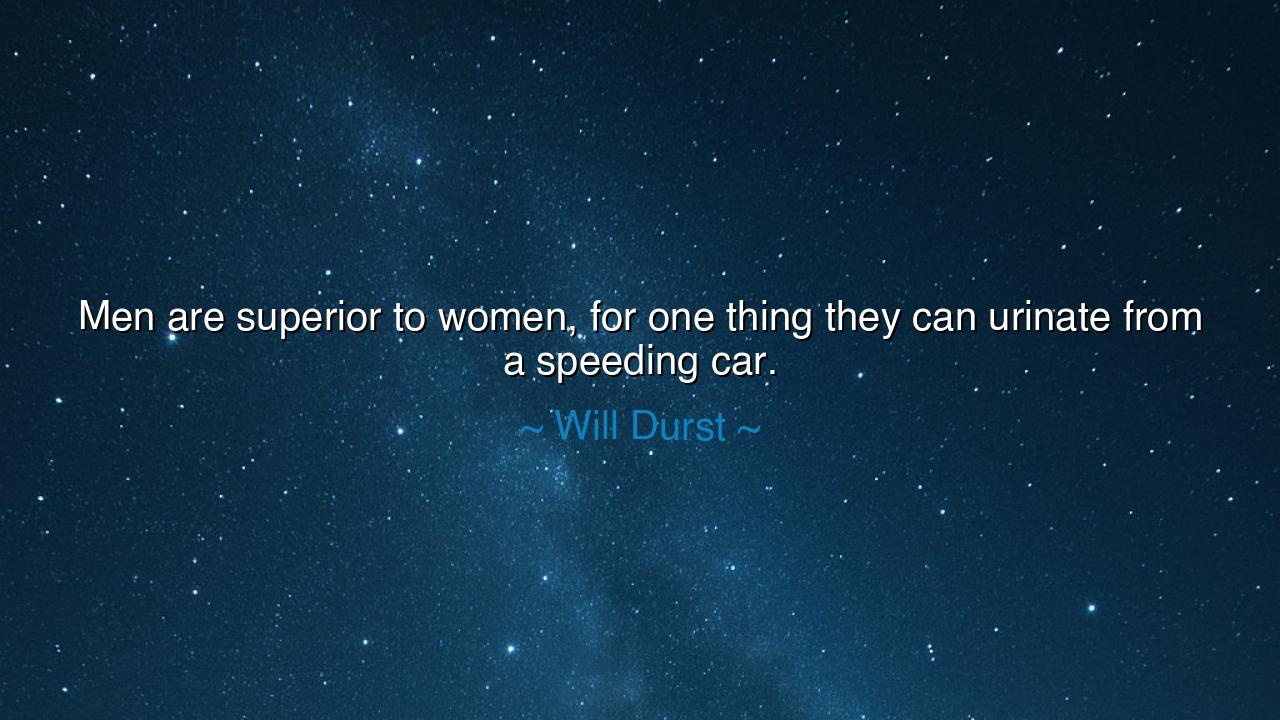
Men are superior to women, for one thing they can urinate from a






Hearken, O seeker of wisdom, to the words of jesting truth once uttered by Will Durst: “Men are superior to women, for one thing they can urinate from a speeding car.” Though clothed in laughter and jest, such words conceal deeper meaning, for in the cloak of humor often dwells the mirror of our customs and follies. The ancients themselves spoke in parables, knowing that the people would attend more eagerly to the sound of mirth than to the burden of solemn decree.
In truth, this saying is not a proclamation of true superiority, but a satire aimed at those who measure worth by trivial prowess. For what is the ability to relieve oneself from a chariot in motion compared to the power to nurture life, to weave harmony, or to endure the unrelenting storms of existence? Thus, Durst’s words are but an echo of ages past, when men exalted themselves for feats of might, while the greater mysteries of endurance and compassion went unsung.
Recall the tale of Diogenes the Cynic, who mocked the pretensions of Athens not with sword or speech, but with outrageous acts that made his audience laugh—and think. So too does this jest of Durst serve as a lantern in broad daylight, showing that what some call advantage is in truth but foolish vanity. The wise discern that comedy, like the blade of a sword, cuts both ways: it entertains, but it also humbles.
Consider also the battlefield of Thermopylae, where three hundred Spartans stood against the tide of Persia. Their valor was not measured by trivial gifts of the body, but by steadfast spirit and sacrifice. By invoking so small a thing as the posture of urination, Durst reminds us that if men claim mastery by such measures, their superiority is indeed frail. True greatness rests not in fleeting acts of the flesh, but in the endurance of soul.
Therefore, O child of time, when you hear laughter spring from such a jest, do not take the words as iron law, but as a gentle scourge against pride. The measure of man or woman lies not in the accidents of nature, but in the deeds wrought in the forge of hardship. Let this teaching be a reminder: humor is the cloak of wisdom, and those who can laugh at folly are already walking the path of truth.






AAdministratorAdministrator
Welcome, honored guests. Please leave a comment, we will respond soon